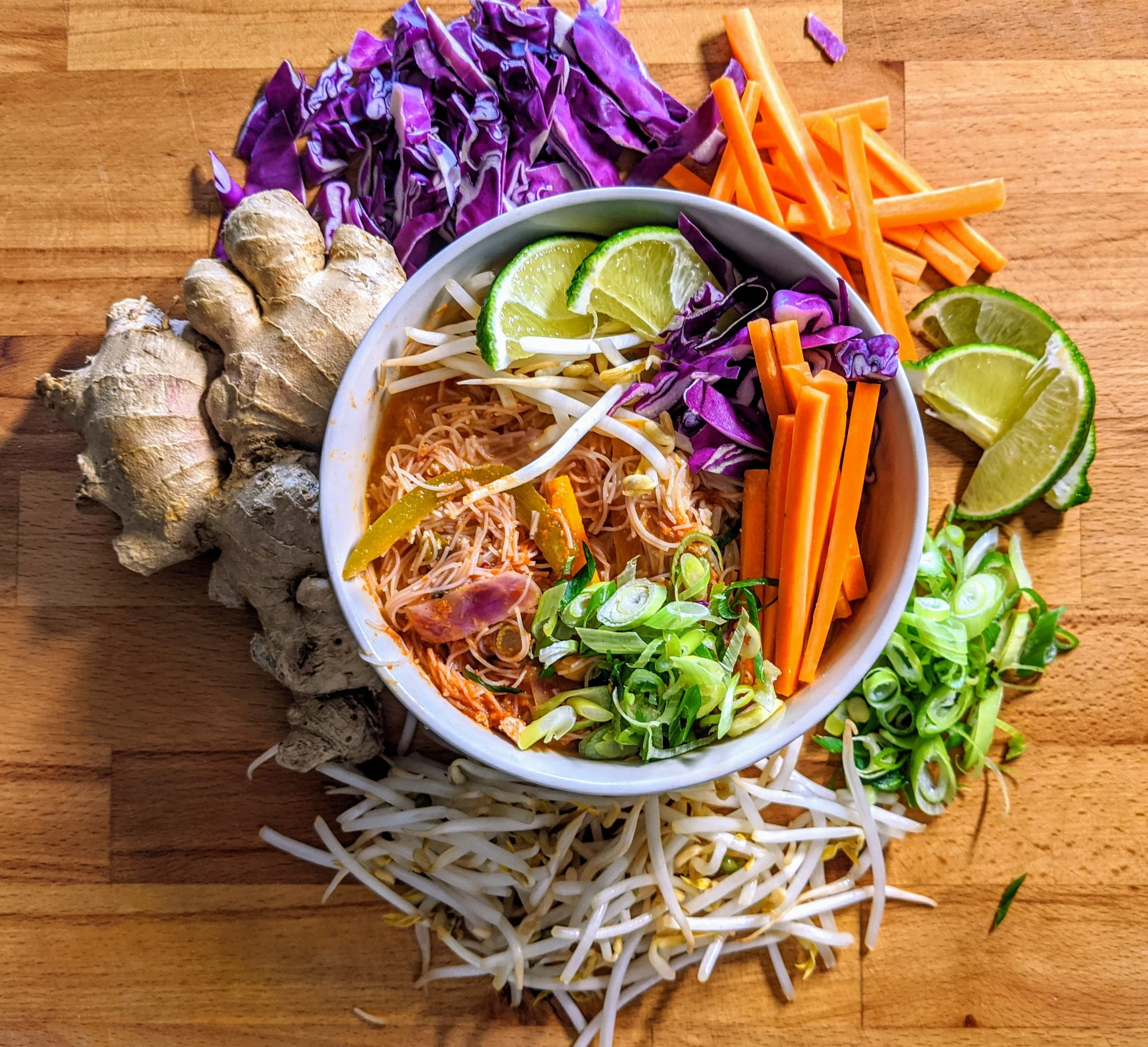Why Plant-Based Eating is About Addition, Not Restriction
When most people think about eating more plants, the conversation turns to what’s off the plate. Less cheese. Less sugar. Less oil. It’s a mindset of subtraction.
But the real joy of a plant-forward lifestyle isn’t in what you cut out — it’s in what you pile on. A little extra roasted zucchini tossed into your pasta. A handful of spinach folded into your morning smoothie. A bowl of lentils spiced differently than the last time you made them.
Plant-based eating isn’t about narrowing your world. It’s about opening it up — adding more color, more flavor, more life to your plate.
We’ve Been Trained to Think Restriction
So much of the food world is about limits. Cut carbs. Skip dessert. Say no. No wonder people burn out.
But plants don’t work like that. Vegetables, legumes, grains, herbs - they’re not about denial, they’re about possibility. You don’t stop at “enough.” You can layer them, stack them, roast them, pickle them, stir them into soups. Every time you add another vegetable, you’re not just padding the nutrient numbers - you’re giving yourself more ways to enjoy food.
Addition Makes Everyday Meals Sing
Think about it:
That pot of tomato soup you always make? Toss in roasted red peppers and carrots, and suddenly it has depth, sweetness, and more body.
Your usual grain bowl? Add roasted cauliflower, fresh herbs, and a squeeze of lemon, and it becomes something you actually look forward to eating three days in a row.
Pasta night? Wilt down a whole bunch of spinach in the sauce, and you’ve added iron, fiber, and a punch of green without changing the dish at all.
This is what “addition” really means - layering on more vegetables until your meals feel abundant instead of bare.
Energy, But Steadier
Adding more vegetables to plant-based meals doesn’t just taste better - it changes how you feel.
Vegetables bring fiber, water, and micronutrients that steady your digestion and energy. They keep your blood sugar on an even keel so you don’t crash an hour after eating. You don’t need more coffee. You don’t need another snack. You just feel fueled.
That’s not restriction. That’s liberation from the afternoon slump.
Variety Is the Secret Weapon
It’s easy to get stuck in a rut, even as a vegetarian or plant-based eater. Tofu stir-fry. Lentil soup. Grain bowl. Repeat.
But the minute you start asking, “What else can I add here?” everything shifts. That tofu stir-fry becomes an entirely new dish when you add snap peas, shiitakes, and bok choy. Lentil soup tastes brand-new with fennel and kale. A grain bowl goes from basic to show-stopper with roasted beets, citrus segments, and tahini drizzle.
Adding plants doesn’t just expand your plate. It expands your imagination.
You Don’t Have to Do It All at Once
The best part? You don’t need a whole new cookbook or a major kitchen overhaul. Just start with one habit: every time you cook, add one more plant than you normally would.
Smoothie? Throw in a handful of frozen cauliflower or zucchini - you won’t taste it, but your body will thank you.
Salad? Top it with roasted sweet potatoes or chickpeas instead of just croutons.
Sandwich? Layer in cucumbers, sprouts, or roasted peppers.
It’s not about perfection. It’s about building the habit of thinking in terms of addition.
The Ripple Effect
Here’s what happens when you approach food this way:
Your meals feel more satisfying, because more textures and flavors are at play.
You cut down on waste, because you’re tossing those leftover veggies into dishes instead of letting them wilt.
You naturally eat more fiber and micronutrients, without ever counting or tracking.
The beauty of addition is that it works quietly in the background. No guilt, no rigid rules - just food that feels good.
The Bottom Line
Plant-based eating isn’t about what’s missing. It’s about what’s possible. The handful of greens in your soup. The roasted veggies on your pasta. The herbs you sprinkle over your bowl.
Every time you add another plant, you’re not restricting yourself - you’re building meals that are more exciting, more nourishing, and more satisfying than before.
So the next time someone says plant-based is all about giving things up, just hand them a plate piled high with roasted veggies and grains. Then tell them the truth: “I didn’t lose anything. I just added.”


